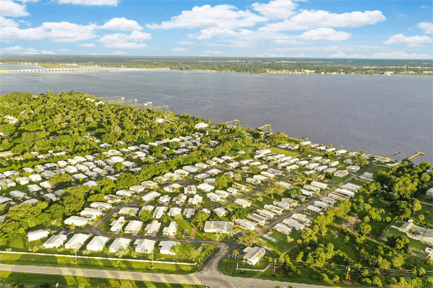The beauty of buying a manufactured home is having the option to put your dream home exactly where you want it. All you have to do is pick the floor plan and features you want and have your home delivered to your location of choice.
While finding the right land can be overwhelming, it doesn’t have to be. Here’s what you need to know about finding the best land for your manufactured home.
Finding the Right Space for Your Manufactured Home Placement
Like any property search, it can be helpful to enlist the assistance of a realtor or online property listing to find available land. However, knowing what to look for can make the process smoother. Typically, the best options for manufactured homes are vacant land or a lot in an existing manufactured home community.
Finding what works best for you requires a bit of research, and the process will vary according to which type of land you want.
Purchasing Land for Your Manufactured Home
Some homeowners prefer purchasing private land as it is more secluded with fewer neighbors to deal with. However, when it comes to purchasing land for your manufactured home, there’s more to it than just finding the ideal plot. In fact, several requirements must be met for it to be perfect for your new home.
- Lot size. Your plot must have a large enough site for your manufactured home. This isn’t just the plot size but a workable area within the plot.
- Restrictions. Some properties have limitations on what you can do with the land.
- Zoning. While every municipality is different, many require special zoning requirements for manufactured homes. Make sure the property you want is properly zoned before making a final decision.
- Permits. If zoning is fine, you’ll likely need permits to lay the necessary foundation for a new manufactured home. You may also need additional permits for other construction activities.
- Regulations. Be sure to check for any regulations that require the manufactured home to be placed in a specific location on the land or any easements you’ll need to consider.
- Environmental concerns. Verify whether the property is in a floodplain and the risk of flooding on the property. If the property is in a floodplain and you are working with a lender, you’ll likely need to purchase flood insurance.
- Utilities. Find out if utilities are available on the property. If not, ascertain how much it will cost to connect, check that available groundwater is not contaminated, and perform a percolation test needed for a septic tank if sewage is not available.
- Required preparation. Purchasing vacant land will often require land to be leveled, felling of trees, and more. Evaluate the work needed for preparing the site.
- Taxes. Each municipality taxes manufactured homes differently. Before finalizing your purchase be sure to verify the tax rate for the location.
- Emergencies. Consider the land’s distance to medical facilities and emergency services, as this can be a concern — especially in one’s later years.
Not all of these parameters need to be met in order for the plot to work for your manufactured home placement. However, they could increase costs or add complexities. Doing your research is critical to ensuring that the plot you find is suitable for a manufactured home and that the entire project is within your budget.
Manufactured Home Community
On the other hand, some homeowners choose to place their manufactured homes in an established community. If the community you select is resident-owned, you may have the option to purchase the land. Otherwise, you will need to rent the land for your new home.
Choosing an established community can be helpful since the land is ready to receive your manufactured home. These communities already have established utility connections and usually have level lots and a paved driveway. They may offer additional amenities including recreational areas like a swimming pool, shuffleboard, or tennis. Many established manufactured home communities are 55 and older communities, which can help homeowners find neighbors of similar social and recreational interests. You can find manufactured home communities with no age requirements as well.
You may want to confirm if there are any extra fees required for placing your new home in the community. This will help you factor in the appropriate costs when making your final decision.
Which Option Is Right for Your Manufactured Home Placement?
Ultimately it comes down to what you can afford and your personal preferences. If you are looking for privacy, placing your new home in an established manufactured home community may not be for you. Likewise, cost is an important factor in your decision as vacant land, while seemingly cheaper upfront, may actually end up costing more with the additional fees for land preparation, utilities, permits, etc.
Before you make any land decisions, it’s helpful to know exactly which customizable model manufactured home you want. Then you can be sure to find a plot that can accommodate your new home.
Jacobsen Homes offers high-quality manufactured homes designed with precision and care. Whether you want something small or are looking for a larger home, our versatile floor plans and capabilities will help you create your perfect home.
Contact us today to speak with one of our manufactured home experts. They will help you design your home and guide you through the manufactured home placement process.

